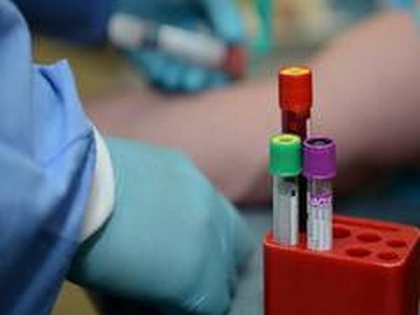Conduct sero surveys to generate district-level data: Centre to States, UTs
By ANI | Published: July 28, 2021 07:10 PM2021-07-28T19:10:28+5:302021-07-28T19:20:02+5:30
The Central government on Wednesday advised all States and Union Territories (UTs) to conduct sero-prevalence surveys in consultation with the Indian Council of Medical Research (ICMR) to generate district-level data.

Conduct sero surveys to generate district-level data: Centre to States, UTs
The Central government on Wednesday advised all States and Union Territories (UTs) to conduct sero-prevalence surveys in consultation with the Indian Council of Medical Research (ICMR) to generate district-level data.
As per a letter written by the Union Health Secretary to Additional Chief Secretary/Principal Secretary/Secretary (Health) of all States, sero-prevalence survey is essential in formulating localised public health response measures.
"The Union Health Ministry has referred to the findings of the 4th round of National Sero-Prevalence Survey done by ICMR and has advised the States to conduct the sero-prevalence studies in their own States/UTs in consultation with ICMR, so that such studies follow a standardized protocol, and the findings of such studies can then be utilized quickly by the respective State/UT to guide objective, transparent and evidence-based public health response to COVID-19," read the release by the Central government.
ICMR has conducted the recent National Sero-survey in 70 districts of India. The findings of this survey reveal that Madhya Pradesh has the highest seroprevalence with 79 per cent, followed by Rajasthan with 76.2 per cent, Bihar with 75.9 per cent, Gujarat with 75.3 per cent, Chhattisgarh with 74.6 per cent and Uttarakhand with 73.1 per cent.
It further said that the national sero-survey by ICMR was designed to capture the extent of the spread of Covid infection at the national level.
Therefore, the national sero-survey results do not reflect the heterogeneity of sero-prevalence between districts and even between States, read the release.
( With inputs from ANI )
Disclaimer: This post has been auto-published from an agency feed without any modifications to the text and has not been reviewed by an editor
Open in app